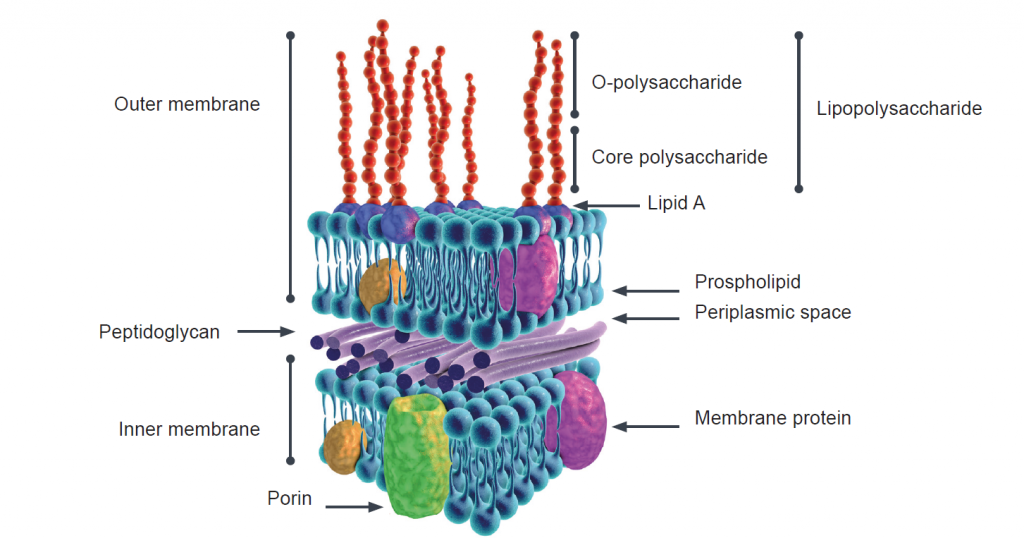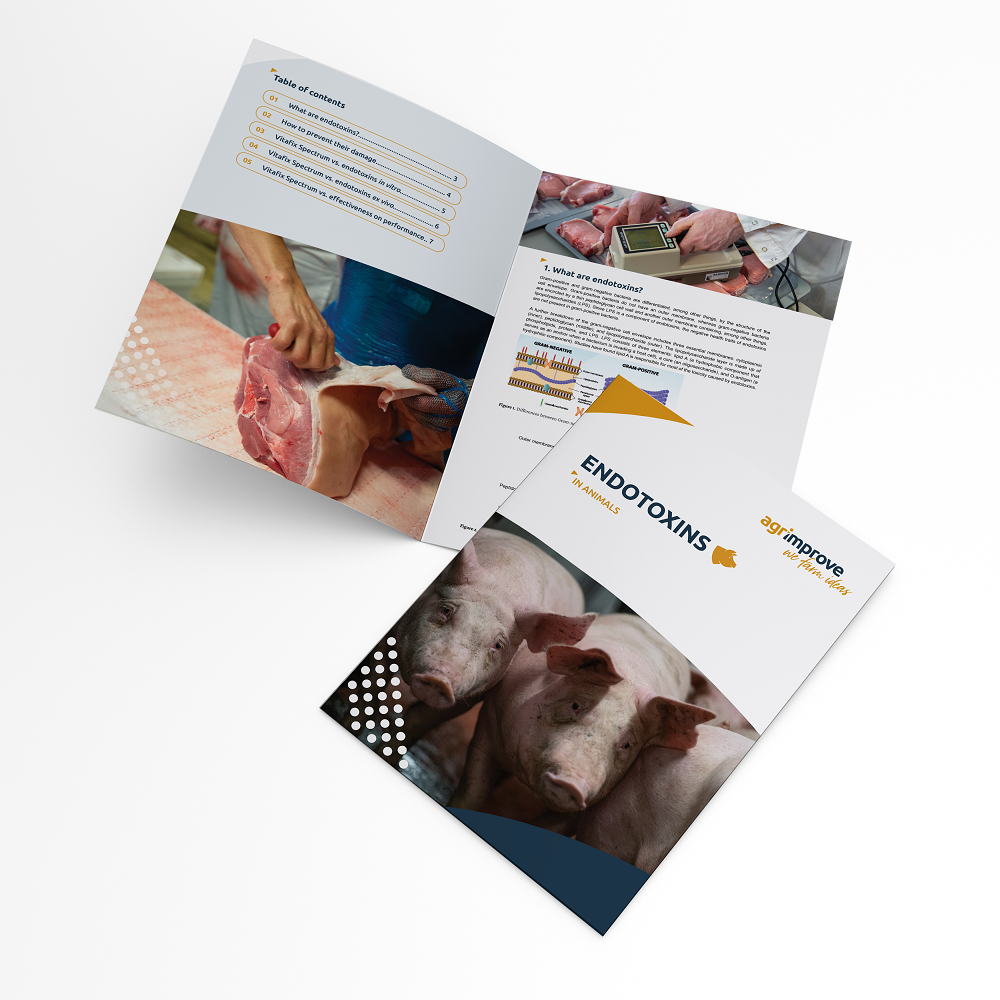Naturally living in the animal intestinal system, endotoxins—meaning ‘toxin from within’—are the lipopolysaccharide (LPS) contained in the membrane of gram-negative bacteria. This LPS is an inflammatory pyrogen and triggers an immune response in the gut. When stressed, the gut microbiome balance of gram-positive and gram-negative bacteria tilts adversely to too many gram-negative bacteria. This immune response negatively impacts animal health and reduces production potential.
Endotoxins are generally not present in grains or feed but produced in the gastrointestinal tract—particularly the large intestine—when there is an overgrowth of gram-negative bacteria. The difference between gram-negative and gram-positive bacteria is the structure of the cell envelope. Gram-positive bacteria have a cytoplasmic and peptidoglycan outer membrane. In addition to these layers, gram-negative bacteria have an outer layer. The outer layer contains phospholipids, proteins, and LPS.
Lipopolysaccharides, also called endotoxins, consist of three elements: lipid A (a hydrophobic component that serves as an anchor when a bacterium is invading a host cell), a core (an oligosaccharide), and O-antigen (a hydrophilic component).

The physiological activities of LPS are mediated mainly by the Lipid A component. Lipid A is a powerful biological response modifier that can stimulate the mammalian immune system. By stimulating localized or systemic inflammation (via the activation of receptors) additional oxidative stress occurs. The associated inflammation alters epithelial barrier integrity and reduces nutrient absorption and utilization.
Often seen in the animal by:
Enterobacteriaceae, a family of gram-negative bacteria typically present in the intestines, is the most common endotoxin-containing bacteria in animals. Frequent diseases initiated by this family include salmonellosis or colibacillosis. These diseases are intrinsically associated with the unrestricted growth of pathogenic bacteria displacing the balance of favorable intestinal microflora.
Commonly, diseases caused by gram-negative bacteria are eliminated after the administration of antimicrobials and/or the work of the immune system. In the process, the bacterial membrane is destroyed to result in an unintended consequence, the liberation of endotoxins that will harm the animal. Once endotoxins are released, depending on the type of LPS present, an immune reaction begins. Other factors important in determining the degree of the immune response include:
On a farm, there are many risks to animal health that can be managed externally, however, some are unavoidable. Reducing stress can influence the ratio of gram-negative to gram-positive bacteria present in the gut. Still, the risk of endotoxins is always there. Since killing gram-negative bacteria releases high levels of LPS, binding them to pass through the animal is the best solution for health, performance, and profit.

Would you like to be kept informed of our latest developments? Register here and stay up to date.
"*" indicates required fields
| Cookie | Duration | Description |
|---|---|---|
| cookielawinfo-checkbox-analytics | 11 months | This cookie is set by GDPR Cookie Consent plugin. The cookie is used to store the user consent for the cookies in the category "Analytics". |
| cookielawinfo-checkbox-functional | 11 months | The cookie is set by GDPR cookie consent to record the user consent for the cookies in the category "Functional". |
| cookielawinfo-checkbox-necessary | 11 months | This cookie is set by GDPR Cookie Consent plugin. The cookies is used to store the user consent for the cookies in the category "Necessary". |
| cookielawinfo-checkbox-others | 11 months | This cookie is set by GDPR Cookie Consent plugin. The cookie is used to store the user consent for the cookies in the category "Other. |
| cookielawinfo-checkbox-performance | 11 months | This cookie is set by GDPR Cookie Consent plugin. The cookie is used to store the user consent for the cookies in the category "Performance". |
| viewed_cookie_policy | 11 months | The cookie is set by the GDPR Cookie Consent plugin and is used to store whether or not user has consented to the use of cookies. It does not store any personal data. |
